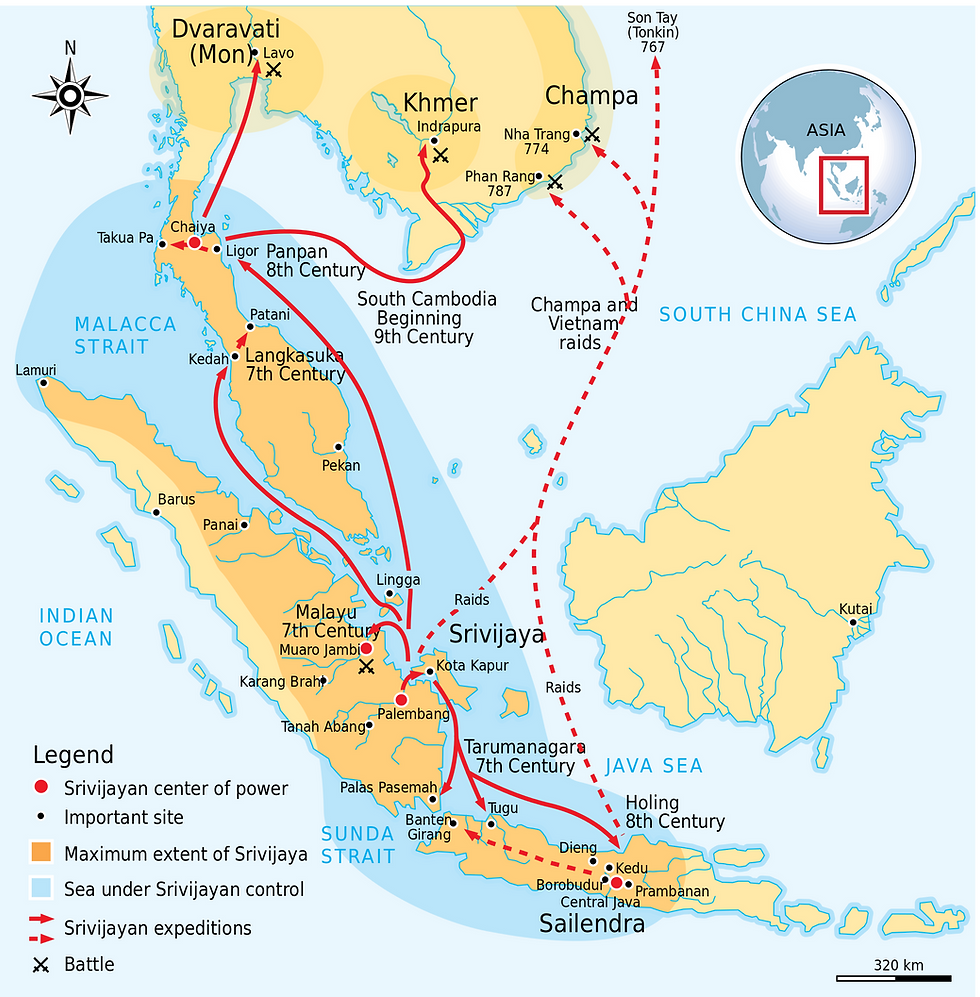The Politics of An Accelerating World
- Luis Nasser, Professor in Political Science
- Nov 22, 2015
- 3 min read

Whilst journeying through the vast world of the Monsoon Marketplace, I was quite overwhelmed by the great advances in technology and economy. To see such pioneering inventions and systems in the flesh was marvelous. However, these things pale in comparison to what I consider the most intriguing yet equally important advancement of this age: politics.
The politics of this accelerating world went hand in hand with technological advancement and the growth of commerce; more so than in any other period of time. This realization came to me first, when I went back in time to the Golden Age of China under the Tang and Song dynasties. The innovative constructions of new technologies such as the magnetic compass and revamped ships incentivized merchants to set sail to the Monsoon Marketplace. Speaking of monsoons, the usage of these natural winds also helped commerce become more effective. However, all of these things came to be thanks to the Tang and Song Dynasty politics. The political stability made possible by a rigid state structure divided into six major ministries and surveilled by an agency known as the Censorate, provided a harmonious environment in which people, including merchants, could thrive. And this trend of strong states enabling security and motivation can be seen elsewhere. The Arab empires for instance, were another pivotal location for commerce during this epoch.
The Rise of Islam in the seventh century propelled merchants into greatness, as they were welcomed by the religion instead of being antagonized by it like Confucianism did in China. But, one similarity the Arab empires shared with China was undoubtedly the single political system that served as the matrix for economic and technological boom. During the previous poll my fellow time-traveler Dr. Junior Garcia had me do, I also took the time to ask the merchants around the Islamic world how they felt they impacted the world and there was a unanimous consensus. They all stated that they had brought together a strong community of merchants, a "maritime culture" as they called it, which consequently facilitated commercial transactions.
Yet a very big distinction that I was able to grasp during my time traveling was the increase of cities and city-states transforming into the heart of trade and commerce. This became very clear when I met none other than Marco Polo himself in the city of Hangzhou whom of course I had to interview. He became infatuated with the capital, claiming that it was "beyond dispute the finest and the noblest in the world". He went on and on about how great the city was and I encouraged him to record his journey in a book, which came to be a Hangzhou Times Best Seller. Anyways, this guy opened my eyes and made me see the importance of powerful cities in the Monsoon Marketplace. Hangzhou established its presence in the world of maritime trade, as well as European cities like Venice. The essence of the Sea Road was the archipelago of towns which it operated in. With the fruition of trade, there came political change which was most prominent in Southeast Asia and East Africa. The cities and city-states in both regions were tremendously affected in their political structure due to the focus on commerce. For instance in the competition in Southeast Asia made the kingdom of Srivijaya rise as well as the Khmer Empire and the state of Funan. With prosperous trade there came cultural diffusion, and these city-states are clear evidence of it. They adopted Indian political ideas and Buddhist religious concepts that benefited rulers who were considered to be god-kings with magical powers. Similarly, the rapid acceleration of trade also helped the Swahili civilization prosper. Their political structure was similar to that of Greece, where each city was highly independent and no larger system unified the group. This is most likely due to the geography of the region, which allowed for each individual city along the coast to be self-sufficient.
Clearly, the political compositions of the participants of the Monsoon Marketplace were widely dynamic. Influenced by technologies and increased trade, the states, empires and cities of this era are a fascinating spectacle that you cannot miss; although I guess you're a few thousand years late.



























Comments